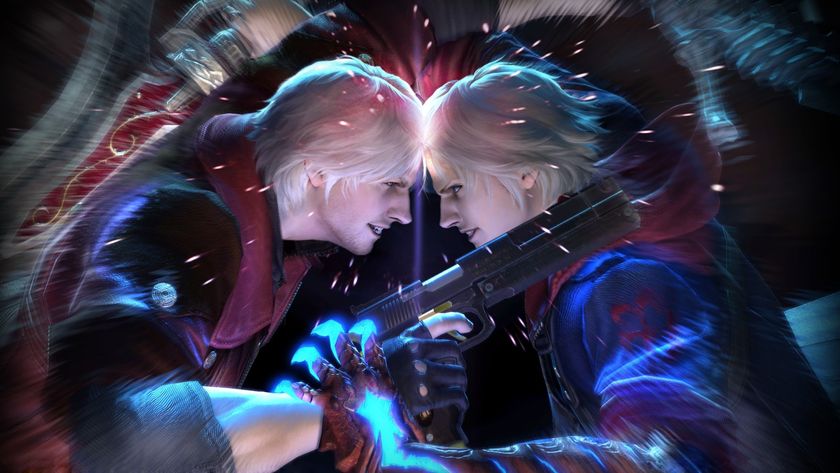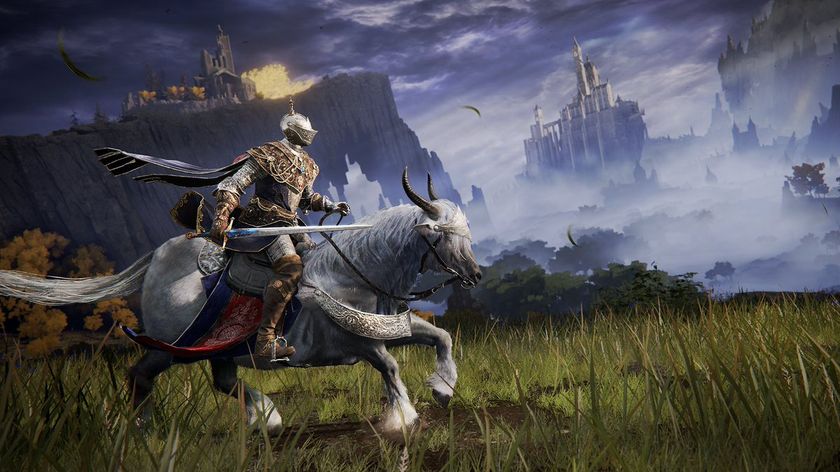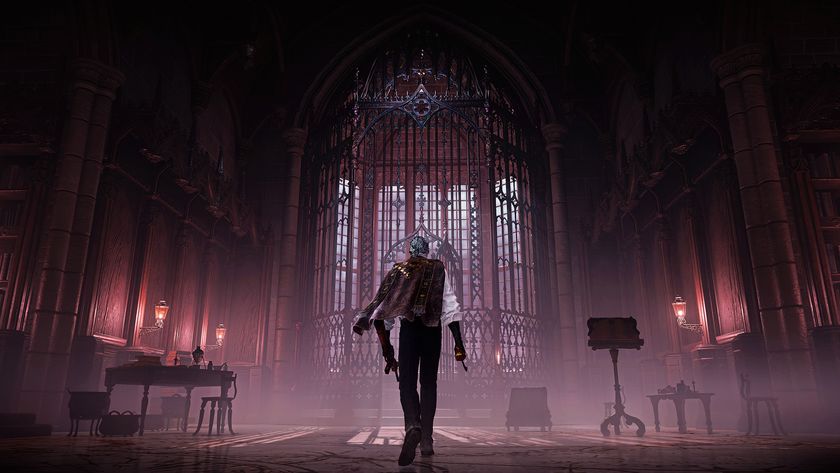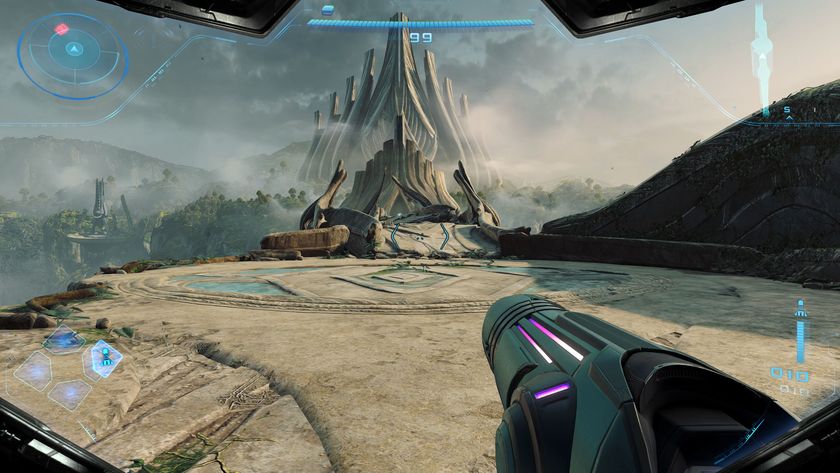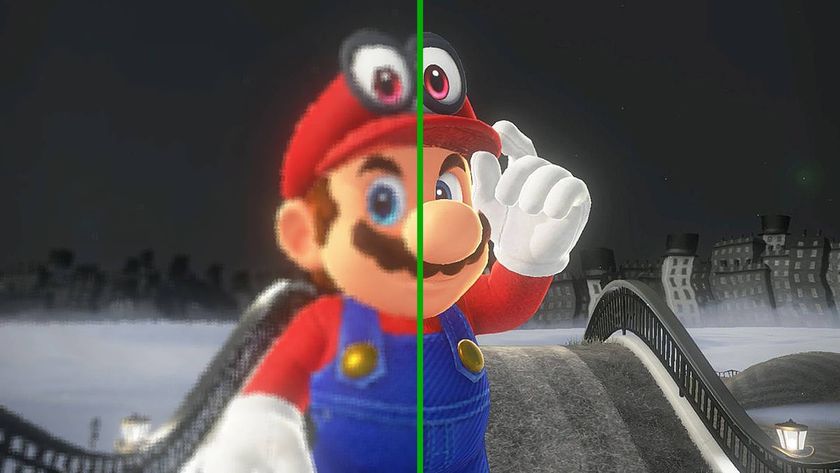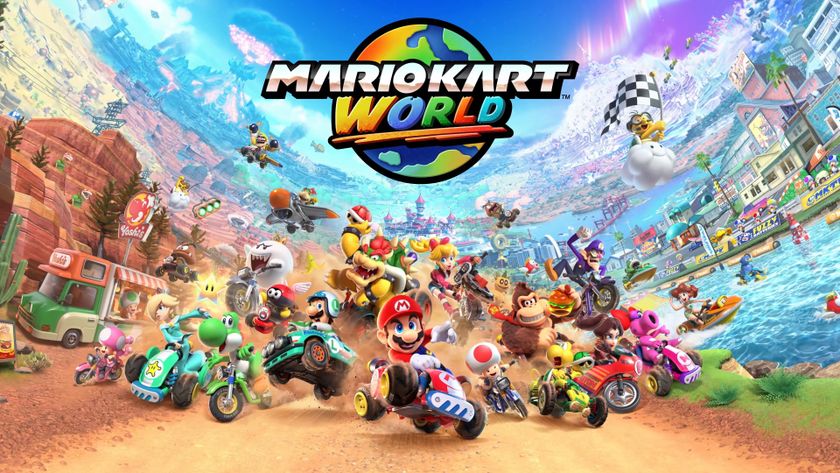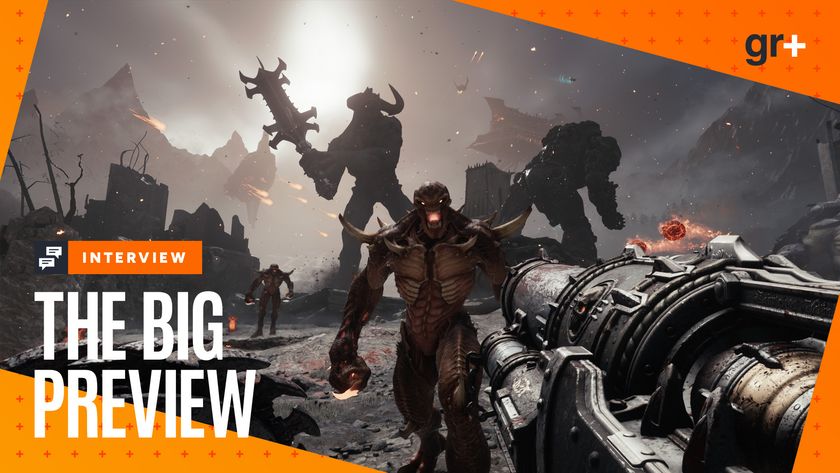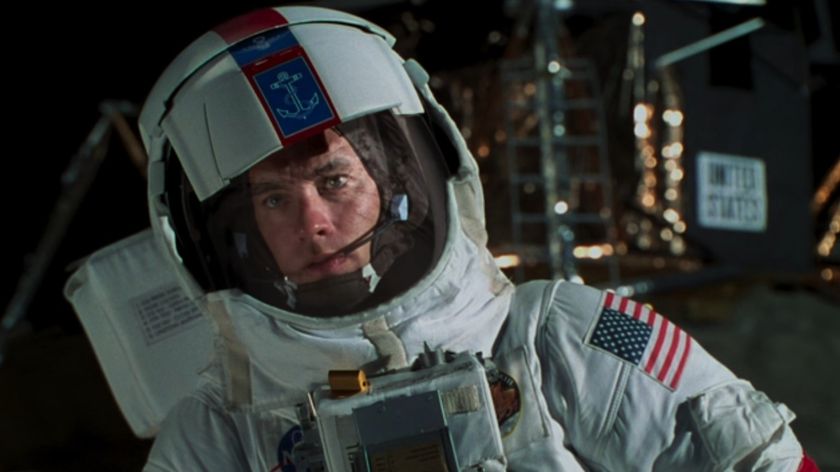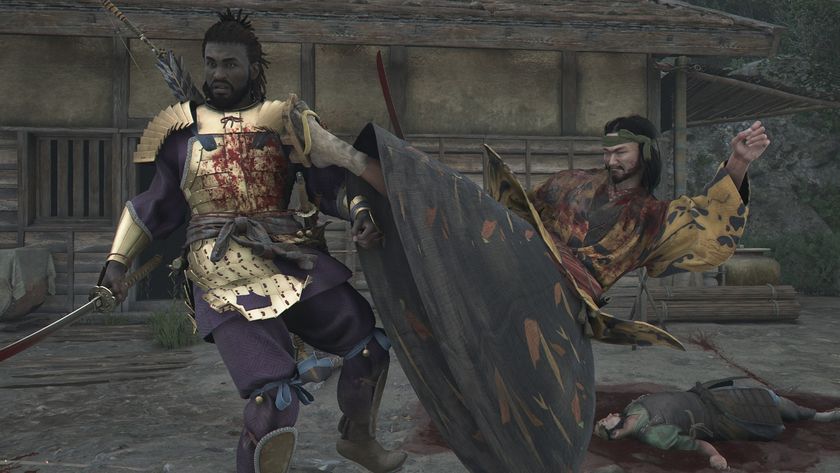Rod Roddenberry, son of Star Trek creator Gene, has made a documentary on the phenomenon of the final frontier, its global legion of fans and his complex relationship with a visionary father. Trek Nation makes its international debut at this year's SCI-FI-LONDON, and here Rod speaks exclusively to SFX about this deeply personal journey into the 23rd Century and beyond...
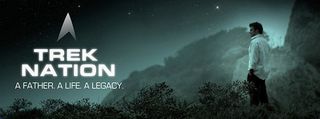
We're here to talk about your documentary Trek Nation . What prompted you to go on this journey?
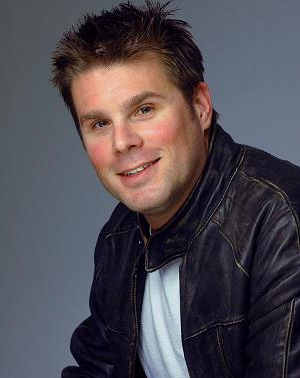
When I was a young boy I didn't know anything about Star Trek and I didn't care about Star Trek . I was doing my own thing; I watched Knight Rider and Dukes of Hazzard and other shows besides Star Trek . I did watch science fiction, I loved Star Wars , I loved Buck Rogers , but for some reason I never watched Star Trek .
It wasn't until I got older that I began to understand a little more about it. I knew my father was a producer on it but I didn't really know what that meant, I still didn't get it. Sadly it wasn't until he passed away that I was open enough with my eyes and ears to hear some of the stories about how Star Trek was more than entertainment, about how it touched lives and impacted people in a positive way. I spent many years afterwards trying to discover who my father was and what it was about Star Trek that touched so many people and had many opportunities to talk with fans and to meet people and go to conventions.
I then had the opportunity to work on a TV show called Earth: Final Conflict . They called it Gene Roddenberry's Earth: Final Conflict . I became really proud of the name after my father passed away. This show had a decent first season with tremendous potential yet unfortunately it lost its way. But it caused me to investigate things. I started a website called the Gene Roddenberry Philosophy Sphere and it aimed to interact with people. I found out a tremendous amount and fandom is where it really all came from in terms of what I was learning about Star Trek and my father. I met people from all walks of life, from different social backgrounds, economic backgrounds, religious beliefs, political persuasions, all ethnicities from all over the world and I was amazed how a TV show could project a future that was a commonality between so many diverse people. The fact that we all agreed in a future where we all worked together for the greater good was mind-blowing considering the reality of conflict that goes on in our society. I was very inspired by that and I wanted to do a documentary that showed this. I was indirectly inspired by a documentary called Trekkies . Now Trekkies came out a while ago and it showed the extreme sides of fandom. It wasn't something I enjoyed too much, it just sort of said 'Look at all these nut jobs who wear costumes'. I was indirectly inspired by that because I wanted to show the truth. I wanted to show how amazing these people were and how they weren't all crackpots.
So I found a gentleman by the name of Scott Colthorp who was a short film maker and he said that we really need to bring in the father-son angle. I was fairly resistant to that at first because it was awkward to see me being in the film. But over the years as we shot interviews that became more and more of a reality and made more sense to me. That was the vehicle: a son searching to understand who his father was, going on that journey and learning all of these things. That was essentially the genesis of Trek Nation .
Is there any part of your journey for Trek Nation that has really stayed with you? Any particular story that affected your perception of your dad or the show?
Sign up to the SFX Newsletter
Get sneak previews, exclusive competitions and details of special events each month!
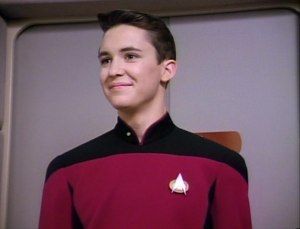
There's a story with Wil Wheaton which was one of the more emotional times during my interviews with him. Bear in mind that I had never done a documentary and when I approached this I did everything wrong. Every interview we did was unscripted and a conversation. The smart thing to do is to think of your five questions you're going to use and thread throughout the entire documentary and ask every interviewee those five questions. We didn't do that. I literally had discussions about the future and Star Trek and my father just sort of organically with everyone. And so every interview was at a minimum forty five minutes to two hours.
Wil Wheaton was no different. It was a phenomenal interview. It was casual, it was in a bar and we just talked about everything. We hashed out how we first met and we talked about my father and some of the opportunities he got with my father. My father would invite him into his office and sit him down and sort of be fatherly to him and share. Wil often says that when he came on to Next Generation he didn't feel like he had the right to be there, that Star Trek was too big for him and that he wasn't worthy in a way. He didn't use those words but that's the message he conveyed to me. It was my father who let him know that he was worthy and that he was just as much a part of that show as anyone on that crew or cast. He was there for him and defended him to the fans on a number of instances. When I heard these stories they were a little shocking to me because I thought I had not necessarily had those opportunities with my father. Not that he was ever mean to me, but we didn't have those father-son times where I felt he was proud of me. I know he was now, but at that time it was hard to hear that because I heard that not just from Wil Wheaton but everyone, that he was like a father figure to them. There was a tremendous amount of jealousy that welled up.
There's even a story where my father stopped production on The Next Generation . It was the episode where Wil Wheaton is promoted to the rank of ensign. My father went in, stopped production which costs something like seven hundred dollars a minute, and presented Wil Wheaton with the ensign bars that he'd received in World War Two, his real bars. That was something that I took very emotionally, that he would give them to Wil Wheaton and not his son. It's not the bars that I wanted but it was that recognition. You always want your father to recognise you.
The point is that with those stories, hearing that, there was a tremendous amount of jealousy but as I continued to talk to him and explored my thoughts and feelings with close friends, who are like family to me, I came to the realisation that it wasn't these other people that my father loved more than me - they were just a tremendous number of brothers and sisters that I have. I was able to see the love that my father had for me and the opportunities that I had with him that other people didn't.
It was a realisation that my father had many sides to him, like we all do and we all share different parts of ourselves with different people. I definitely did have the love and respect of my father as I reflected on my own experiences with him. This was a tremendous journey for me.
We understand that Roddenberry Entertainment has other projects in development. Could you tell us a little more about them?
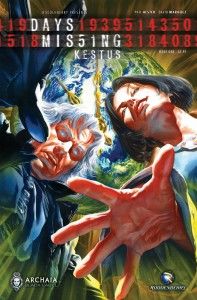
We do our damnedest to represent the name and one we're very proud of right now is Days Missing , which is a comic book series. It's got tremendous accolades. The stories are not one dimensional, there's a lot of depth to the characters. In particular there is the Time Steward, who's been with our species since the beginning, through all the great moments in our history. When something horrific happens, it has the ability to fold back time 24 hours and give us the chance to make a better decision. The Time Steward is fallible like we are. Sometimes it has to make the decision between two evils, sometimes it makes the wrong decision. It's a very well written, very well thought out series. We're just launching the third series.
White Room is another. It's our first foray into independent science fiction. It makes you think a bit and has a great cast. It's a short film. What's very cool about it is that we're pushing boundaries. We filmed it with a 360 degree camera, so it shoots all around. There's a lot of obstacles with this. The entire cast has to be acting at once. Imagine a camera in the middle of a room and cast members all around it having to act out their scenes. The idea is for this to be projected in a dome-like theatre or planetarium where you're in the middle and you get to look and see the whole cast interacting. One of the big challenges of this is that you can't have any crew on set, there's no off set, the set is completely enclosed. The crew has to be behind things. If one actor screws up, they've got to reset. It's definitely a unique way of filming. It's very immersive for those watching it.
We also have a website – this is the embodiment of the philosophy. We're not just putting it on television, we're funding cutting edge innovations towards long term solutions for our planet. We're no longer just saying it, we're doing it.

What did your father think of the phenomenon that he created?
I was born in 1974 and for much of my life until his passing, I didn't know my father. He was daddy to me, the world of Star Trek and his ability to believe in that future and project that future was foreign to me so it is hard for me to say what my father thought.
However I have an opportunity far greater than many people who have lost their parents. I've learned a tremendous amount about my father through his writings, through his works, through his interactions with people. Dare I say, I know him better now than had he been alive today only because I've done this research.
I know that when Star Trek was around in the late sixties and seventies that it was an idea, he got it out there, he got to incorporate many of his beliefs and that it was a failure. He moved onto other things. There are a number of other projects out there, The Questor Tapes , Planet Earth , Spectre . He explored. You could see his work, you could see how his mind worked in these other projects and I encourage anyone who reads or listens to this to go to YouTube and look up these other Gene Roddenberry shows. But Star Trek took on a life of its own. There were enough young, open minded individuals out there who wanted to see it and brought it into syndication and that's where it really grew and found its life.
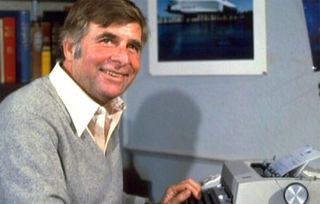
My father, when he got involved with Next Generation , would stand up on stage and there was this joke he would do. He would look over the audience and go “Yep, just the way I planned it” and he'd have a big smirk on his face. I think he would be thinking to himself "How the hell did this happen? I can't believe that so many people love this idea!" I certainly don't think he ever thought it would be as big as it was and I'm sure he was extremely proud and flattered that so many people believed in the future that he did.
Kyle Percival
For more info on Trek Nation 's screening at SCI-FI-LONDON, head here
SFX Magazine is the world's number one sci-fi, fantasy, and horror magazine published by Future PLC. Established in 1995, SFX Magazine prides itself on writing for its fans, welcoming geeks, collectors, and aficionados into its readership for over 25 years. Covering films, TV shows, books, comics, games, merch, and more, SFX Magazine is published every month. If you love it, chances are we do too and you'll find it in SFX.

